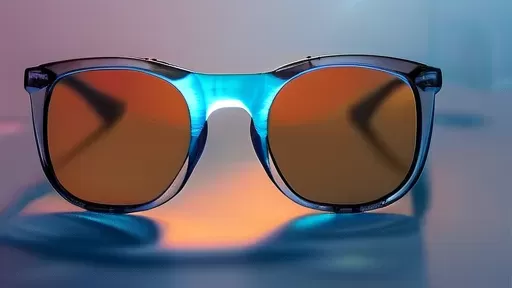Blue Light Glasses May Not Actually Reduce Eye Strain or Improve Sleep, Study Finds

Blue light glasses have surged in popularity, promising to shield our eyes from the potential harm of screens and improve sleep. But a recent, comprehensive analysis is casting doubt on those claims, suggesting that this ubiquitous eyewear may not be as effective as we once believed.
This new research, published in the Cochrane Database of Systematic Reviews, a respected scientific journal, scrutinized 17 randomized controlled trials. The findings indicate that blue light-filtering glasses likely don't provide significant relief from eye strain or contribute to better sleep.
"The evidence is weak, but it suggests that using blue light-filtering lenses doesn't offer any real advantage in reducing eye strain compared to regular lenses," says Dr. Laura Downie, the study's lead researcher and a vision science expert at the University of Melbourne. She added that their conclusion is based on rigorous clinical trials that focused on eye strain over varying periods.
So, what's behind the questioning of blue light glasses' efficacy?
Dr. Downie's team suggests that while blue light emitted from screens has been pinpointed as a possible culprit for eye strain, the amount produced by modern devices is within safe limits and unlikely to harm your eyes.
"We just don't have convincing evidence or a clear biological explanation for how blue light directly causes eye strain," Dr. Downie explains. The study also found no solid evidence that wearing these glasses before bed improves sleep. Important measures such as contrast sensitivity, color perception, glare discomfort, and overall eye health also remained unevaluated.
The research team did acknowledge the need for further investigation, involving larger and more diverse groups of people, with longer monitoring periods. "As more research becomes available, our understanding of blue light-filtering lenses will continue to evolve," Dr. Downie said.
But what exactly is blue light, and why the concern?
Blue light is part of the visible light spectrum. Sunlight is the primary natural source, but artificial lights, computer screens, and other digital devices also emit it.
Dr. Inna Lazar, an optometrist, notes that concerns surrounding blue light often relate to potential retinal damage. However, the scientific community hasn't reached a consensus on whether screen-emitted blue light actually causes such damage.
The American Academy of Ophthalmology maintains that there's no scientific basis to conclude that electronic devices are harmful to your eyes. The American Macular Degeneration Foundation suggests that both UV and blue light might contribute to retinal damage and increase the risk of age-related macular degeneration.
Dr. Lazar emphasizes that concerns about blue light are mainly applicable to circumstances like staring directly at the sun without protection, not daily screen use. She suggests taking screen breaks to alleviate dry eyes, a more common issue associated with prolonged screen time.
Beyond eye health, blue light can impact alertness, mood, hormone production, and sleep. Exposure to blue light before bedtime can interfere with melatonin production, leading to difficulty falling asleep and decreased sleep quality.
Despite these concerns, Dr. Lazar believes that regular use of digital devices isn't likely to cause serious harm to our eyes.
The rising popularity of blue light glasses stems from increased screen time and worries surrounding its potential effects.
Dr. Downie explains that concerns regarding blue light's potential harm are mostly based on animal and lab studies. These studies showed that high-intensity, short-wavelength visible light exposure can induce retinal phototoxicity. However, a direct link between environmental blue light and retinal phototoxicity in humans remains unproven.
Dr. Lazar notes that this situation led to opportunistic marketing that capitalized on these growing worries, resulting in a surge in people wanting these products.
So, what can you do to prevent eye strain?
Dr. Lazar emphasizes that lack of blinking is a major problem with prolonged screen use.
"Take frequent breaks, adjust your screen's brightness to match the room, and position your screen slightly below eye level," she advises. And, of course, don't forget your sunglasses when outdoors.
You don't need to throw away your blue light glasses if you enjoy wearing them, however, don't rely solely on them to alleviate symptoms. Instead, consult an optometrist for a comprehensive eye exam.
Dr. Downie adds that underlying eye issues, like vision problems and dry eye disease, can cause eye strain. If you find that blue light glasses help you, then keep using them. If not, don't worry about it.